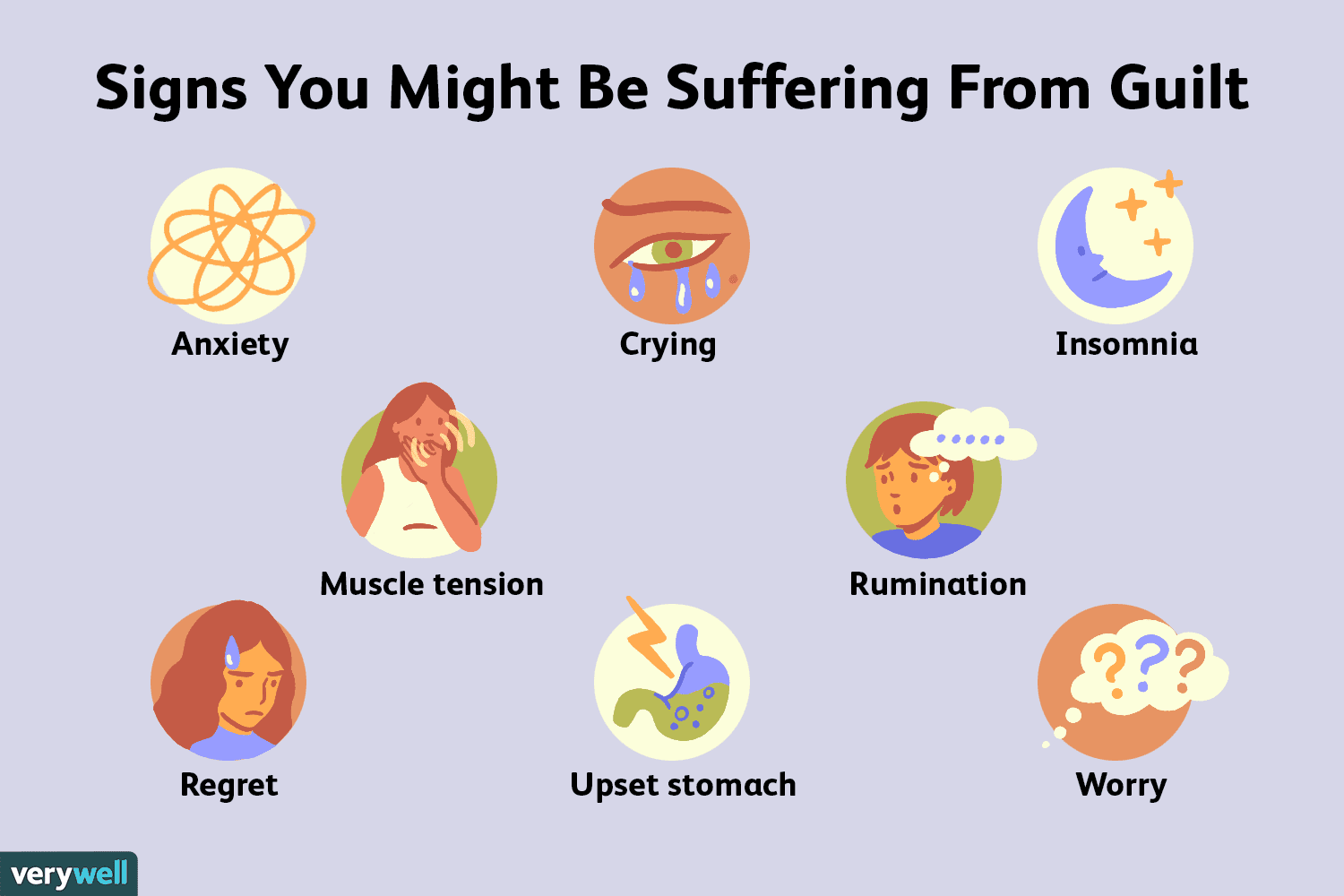Key Takeaways
- Guilt is a common emotion that can be managed effectively through understanding and action.
- Identifying the root cause of guilt is crucial for effective management and resolution.
- Confession and honesty are powerful tools in alleviating feelings of guilt.
- Repairing relationships and reconciling with others can help in moving past guilt.
- Distinguishing between guilt and shame is essential for maintaining mental well-being.
Introduction to Guilt Management
Guilt is an emotion that many of us have experienced at some point in our lives. It can stem from various situations, such as hurting someone’s feelings, failing to meet expectations, or even making a simple mistake. While guilt can sometimes serve as a motivator to improve our behavior, it can also become overwhelming and negatively impact our mental health.
Managing guilt effectively involves understanding its root causes and taking actionable steps to address it. By doing so, we can prevent it from becoming a chronic issue that hinders our emotional well-being. Let’s explore three effective ways to deal with guilt, starting with understanding what guilt truly is.

“Guilt Complex: Definition, Symptoms …” from www.verywellmind.com and used with no modifications.
Understanding Guilt: What It Is and Why We Feel It
Guilt is a self-conscious emotion that arises when we believe we have violated a moral standard or have let someone down. It often involves feelings of regret, remorse, and a desire to make amends. Unlike shame, which is focused on the self, guilt is more about the action or behavior that caused the negative feelings.
Understanding why we feel guilty is the first step toward managing it. It requires introspection and self-awareness to identify the specific actions or situations that triggered the guilt. Here are some common reasons why people experience guilt:
- Breaking promises or commitments
- Causing harm or distress to others
- Failing to meet personal or societal expectations
- Engaging in unethical or immoral behavior
Impact of Guilt on Mental and Emotional Well-being
While a moderate amount of guilt can be beneficial, excessive guilt can have detrimental effects on our mental and emotional health. It can lead to anxiety, depression, and a constant feeling of inadequacy. Most importantly, when left unchecked, guilt can hinder our ability to form healthy relationships and make sound decisions.
Therefore, it’s crucial to address guilt before it spirals out of control. By doing so, we can improve our overall well-being and lead more fulfilling lives.

“Guilt Trip” Sticker for Sale by …” from www.redbubble.com and used with no modifications.
Confess and Seek the Truth
One of the most effective ways to deal with guilt is through confession and seeking the truth. By being honest about our actions and acknowledging our mistakes, we can alleviate the burden of guilt and begin the healing process.
Importance of Honesty in Alleviating Guilt
Honesty is a powerful tool in alleviating guilt. When we confess our wrongdoings, we take responsibility for our actions and demonstrate a willingness to make amends. This not only helps in reducing feelings of guilt but also fosters trust and transparency in our relationships.
Steps to Confess: How to Approach a Confession
Confessing your mistakes can be daunting, but it is a necessary step in managing guilt. For more guidance, consider these tips for coping with guilt to help you through the process.
- Reflect on the situation and identify what you did wrong.
- Choose an appropriate time and place to have the conversation.
- Be sincere and straightforward in your confession.
- Acknowledge the impact of your actions on others.
- Express your willingness to make amends and ask for forgiveness.
By following these steps, you can approach confession with confidence and take the first step toward resolving your guilt.
Benefits of Full Disclosure over Partial Confessions
When it comes to confession, full disclosure is often more beneficial than partial confessions. By fully admitting to your mistakes, you demonstrate integrity and a genuine desire to make things right. This can lead to a greater sense of relief and a more meaningful resolution. Understanding the impact of condescending behavior can also play a role in how confessions are perceived and accepted by others.
Partial confessions, on the other hand, may leave lingering feelings of guilt and prevent you from fully moving forward. Therefore, it’s important to be honest and transparent in your confessions. For more insights on maintaining transparency, explore these effective ways for healthy relationship goals.
- Full disclosure fosters trust and transparency.
- It allows for a more meaningful resolution and closure.
- Partial confessions may leave lingering guilt and prevent healing.
By embracing honesty and seeking the truth, we can effectively manage guilt and pave the way for personal growth and improved relationships.
Avoiding Rumination: How to Move Forward
Rumination, or the act of continuously thinking about the same thoughts, often exacerbates feelings of guilt. It’s like being stuck in a loop of negative emotions that prevent you from moving forward. To manage guilt effectively, it’s essential to break free from this cycle.
To avoid rumination, focus on redirecting your thoughts to more positive and productive areas. Engage in activities that require your full attention, such as exercise, reading, or practicing a hobby. This not only distracts your mind but also helps in building a healthier mental state.
Another effective strategy is to practice mindfulness. Mindfulness encourages you to stay present in the moment and observe your thoughts without judgment. By doing so, you can gain better control over your emotions and prevent them from spiraling out of control.

“5 Ways to Stop Guilt Trips and Start …” from www.newharbinger.com and used with no modifications.
Practicing Forgiveness: Letting Go of Guilt
Forgiveness is a powerful tool in letting go of guilt. It involves accepting your mistakes, learning from them, and moving forward with a renewed sense of purpose. Most importantly, forgiveness isn’t just about others; it’s about forgiving yourself too. For more insights, consider exploring tips for dealing with guilt effectively.
To practice forgiveness, start by acknowledging your imperfections and understanding that everyone makes mistakes. Reflect on the lessons learned from your actions and use them to guide your future behavior. Remember, holding onto guilt doesn’t change the past; it only hinders your ability to break bad habits and thrive.
Here are some steps to help you practice forgiveness, which can be an essential part of maintaining healthy relationship goals:
- Acknowledge your feelings and accept responsibility for your actions.
- Identify what you can learn from the experience.
- Release any resentment or anger you may be holding onto.
- Focus on the present and set positive intentions for the future.
By embracing forgiveness, you can release the burden of guilt and open yourself up to a more fulfilling and peaceful life.
Distinguish Between Guilt and Shame
Understanding the difference between guilt and shame is crucial for effective guilt management. While both emotions are self-conscious and can feel similar, they have distinct differences that impact how we respond to them. For example, learning about different brain areas and their functions can provide insight into how these emotions are processed differently in the mind.
Guilt is typically associated with a specific action or behavior, prompting us to make amends and improve. On the other hand, shame is a more pervasive feeling that targets our sense of self-worth, often leading to feelings of inadequacy and self-loathing.
Differences Between Guilt and Shame
Guilt can be seen as a constructive emotion that motivates change, while shame can be destructive, leading to negative self-perception. To manage guilt effectively, it’s important to differentiate it from shame and address it accordingly.
Strategies to Prevent Guilt from Turning into Shame
- Recognize when guilt is shifting into shame and address it immediately.
- Focus on specific behaviors rather than generalizing them to your identity.
- Practice self-compassion and remind yourself of your inherent worth.
- Seek support from friends, family, or a mental health professional.
By implementing these strategies, you can prevent guilt from escalating into shame and maintain a healthier self-image.
In addition, enhancing self-awareness plays a significant role in managing guilt. By understanding your emotions and the triggers that cause them, you can develop more effective coping mechanisms, such as adopting adaptability techniques.
Enhancing Self-awareness to Manage Guilt
Self-awareness involves being in tune with your thoughts, emotions, and behaviors. It allows you to identify patterns and recognize when guilt is affecting your mental well-being. Here are some ways to enhance self-awareness:
- Practice regular self-reflection through journaling or meditation.
- Seek feedback from trusted friends or family members.
- Engage in activities that promote introspection, such as yoga or mindfulness exercises.
- Set aside time each day to check in with your emotions and thoughts.
By cultivating self-awareness, you can gain a deeper understanding of your emotions and take proactive steps to manage guilt effectively.

“Managing guilt – L’Appui for caregivers” from www.lappui.org and used with no modifications.
Real-life Applications of Guilt Management Techniques
Applying guilt management techniques in real-life situations can lead to significant improvements in your emotional well-being. Let’s explore some practical examples and case studies that demonstrate the effectiveness of these strategies.
Consider the story of Jane, who struggled with guilt after a heated argument with a close friend. By practicing full disclosure and confessing her role in the conflict, Jane was able to repair the relationship and let go of her guilt. She also engaged in mindfulness practices to avoid ruminating on the situation, ultimately finding peace and closure.
Jane’s story highlights the power of confession, forgiveness, and self-awareness in managing guilt. These techniques can be applied to various situations, whether it’s resolving conflicts, making amends, or simply letting go of past mistakes. For more insights, explore tips for dealing with guilt effectively.
Case Studies: Successful Guilt Management Stories
Real-life case studies provide valuable insights into how guilt management techniques can be applied effectively. By examining these stories, we can learn from the experiences of others and gain inspiration for our own journey. For example, understanding enmeshment in families can help individuals recognize and set boundaries, which is a crucial aspect of managing guilt.
Practical Exercises to Apply Guilt Management in Daily Life
Incorporating practical exercises into your daily routine can help reinforce guilt management techniques. Here are some exercises to consider:
- Daily gratitude practice: Focus on positive aspects of your life to shift your mindset away from guilt.
- Visualization: Imagine yourself resolving a guilt-inducing situation and experiencing relief.
- Role-playing: Practice having difficult conversations with a friend or therapist to build confidence in confessing and seeking forgiveness.
By consistently practicing these exercises, you can strengthen your ability to manage guilt and improve your overall mental well-being.
Final Thoughts
Dealing with guilt is an essential part of maintaining mental health and fostering positive relationships. By understanding the nature of guilt and employing effective management strategies, we can transform this emotion from a burden into an opportunity for growth and self-improvement. Remember, guilt doesn’t have to control your life; with the right tools and mindset, you can manage it successfully.
Summary of Key Strategies
The key strategies for managing guilt include confession and honesty, repairing and reconciling relationships, and distinguishing between guilt and shame. These approaches allow us to take responsibility for our actions, make amends, and maintain a healthy self-image. By practicing these strategies, we can alleviate the negative effects of guilt and promote emotional well-being. To further understand the importance of emotional traits, you can read more about extroversion and its key facts.
Encouragement to Apply Techniques and Improve Well-being
I encourage you to apply these techniques in your daily life and observe the positive impact they have on your mental health. Whether it’s through honest communication, practicing forgiveness, or enhancing self-awareness, each step you take toward managing guilt is a step toward a more fulfilling life. Remember, you have the power to change your relationship with guilt and lead a more balanced, peaceful life.
Don’t hesitate to seek support from friends, family, or mental health professionals if you need guidance on your journey. Together, we can work toward a healthier understanding of guilt and its role in our lives.
Frequently Asked Questions
As you continue your journey to manage guilt, you may have some questions. Here are answers to common inquiries that can help clarify the process.
What is the main difference between guilt and shame?
The primary difference between guilt and shame lies in their focus. Guilt is related to a specific action or behavior that violates a moral standard, prompting us to make amends. Shame, on the other hand, is a more pervasive feeling that targets our sense of self-worth, often leading to negative self-perception. Understanding this distinction is crucial for effective guilt management.
Why is full confession beneficial for managing guilt?
Full confession is beneficial because it allows for complete transparency and honesty, fostering trust and understanding in relationships. By fully admitting to mistakes, we demonstrate integrity and a genuine desire to make things right, leading to a greater sense of relief and closure compared to partial confessions.
How can I avoid ruminating on past mistakes?
To avoid rumination, focus on redirecting your thoughts to more positive and productive areas. Engage in activities that require your full attention, such as exercise, reading, or practicing a hobby. Additionally, practicing mindfulness can help you stay present and prevent your thoughts from spiraling into negativity.
Breaking free from the cycle of rumination is essential for managing guilt and maintaining a healthy mindset. If you struggle with breaking bad habits, consider exploring these proven strategies to help guide you.
What are some practical ways to practice forgiveness?
Practicing forgiveness involves acknowledging your mistakes, learning from them, and moving forward with a renewed sense of purpose. Here are some practical ways to practice forgiveness: consider adopting an adaptable mindset to help you navigate through the process of forgiving yourself and others.
- Acknowledge your feelings and accept responsibility for your actions.
- Identify what you can learn from the experience.
- Release any resentment or anger you may be holding onto.
- Focus on the present and set positive intentions for the future.
By embracing forgiveness, you can release the burden of guilt and open yourself up to a more fulfilling and peaceful life. For more insights on managing guilt, check out these tips for coping with guilt.
Consider the story of Jane, who struggled with guilt after a heated argument with a close friend. By practicing full disclosure and confessing her role in the conflict, Jane was able to repair the relationship and let go of her guilt. She also engaged in mindfulness practices to avoid ruminating on the situation, ultimately finding peace and closure.
Jane’s story highlights the power of confession, forgiveness, and self-awareness in managing guilt. These techniques can be applied to various situations, whether it’s resolving conflicts, making amends, or simply letting go of past mistakes.
Can guilt management improve overall mental health?
Yes, effective guilt management can significantly improve overall mental health. By addressing guilt and taking proactive steps to manage it, you can reduce feelings of anxiety, depression, and inadequacy. This leads to a more balanced emotional state and healthier relationships, ultimately enhancing your quality of life.
By embracing the strategies outlined in this article, you can transform your relationship with guilt and achieve a more fulfilling, peaceful existence.
Guilt is an emotion that can weigh heavily on our minds and affect our daily lives. Understanding how to manage and cope with guilt is essential for maintaining mental well-being. For those looking for guidance, there are several effective strategies that can be employed. To explore these strategies further, consider reading 10 Tips for Dealing with Guilt on Psych Central.










Leave a Reply